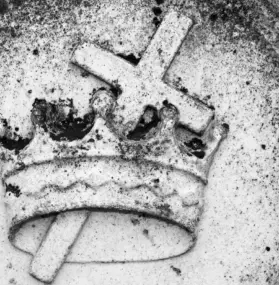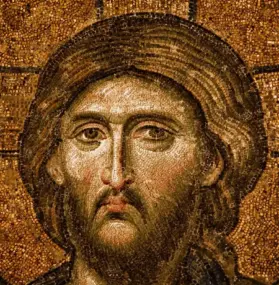- by Carrie Shaw
- on July 28, 2025
“The cup of blessing that we bless, is it not a participation in the blood of Christ? The bread that we break, is it not a participation in the body of Christ? Because there is one bread, we who are many are one body, for we all partake of the one bread.” | 1 Corinthians 10: 16-17, ESV
We Who Are Many Are One
Paul the Apostle’s words, here in Corinthians, reference the deep and powerful truth which is embedded in the Christian ordinance of communion. The truth that, in taking the cup and sharing the bread, we are fully participating in Jesus’ death and resurrection. Jesus is the common element that binds believers together and his sacrifice is what makes the new resurrection life possible for every person who believes in his saving name.
This participation together in drinking wine and breaking bread is a compelling witness to the ‘common union’ believers share in the blood and body of Christ, the sharing in his sin-conquering death and his life-giving resurrection. There is nothing more powerful or significant for a church community than remembering the very thing which gave the church its birth and which binds each member together as part of ‘the whole’.
For this reason, sharing communion is not just about remembering the death of Jesus, including the anguish, surrender, and sacrifice but also about celebrating his resurrection; the vanquishing of sin and the victory over death, won for every person who associates with his name. The new creation was born from his sacrifice and confirmed by his resurrected life, of which we are now all a part, bound together by the life-giving spirit of Jesus himself.
Sharing communion together as believers is primarily a time for celebration, for thanksgiving and praise, for “by his blood and in his name, in his freedom we are free!”
In celebrating this ordinance together, believers are not just connected to Jesus but to each other. It’s significant that Jesus associates the institution of communion – which speaks of his sacrifice and death, motivated by love – with the importance of his followers showing his love by loving one another.
During the meal (Matthew 26:17–30, Mark 14:12–26, Luke 22:7–39, and John 13:1–17:26), Jesus takes the bread and shares it with his disciples, telling them that it is symbolic of his body, soon to be broken for them in death. He shares the cup of wine, telling them it is a symbol of his blood, poured out for the forgiveness of their sins.
He gently tells his disciples that he will only be with them a little longer, referencing, of course, his impending betrayal and crucifixion. He then gives them a ‘new commandment’, to live by once he is gone:
“A new commandment I give to you, that you love one another: just as I have loved you, you also are to love one another. By this, all people will know that you are my disciples, if you have love for one another.” – John 13:34-35, ESV
Jesus first instituted the ordinance of communion, by which his followers would remember him, during his last meal on earth with his closest disciples, but this meal had its roots in a much deeper, incredibly powerful story of deliverance and freedom.
A Story Of Deliverance
The institution of communion had its origins in an ancient Jewish festive meal known as ‘Passover. Celebrated annually, it commemorated the deliverance of the nation of Israel from bondage in Egypt.
The early chapters of the book of Exodus tell of the origins and background of the Passover (Exodus 1-12). Forcibly enslaved upon the accession of a new Pharaoh to the Egyptian throne, the people of Israel were subjected to cruelty, forced labour, and intolerable work and living conditions. In an effort to cull their numbers, Pharoah had issued a directive of neonaticide for any male baby born. As soon as the baby was delivered, he was to be killed by the attending midwives. It was a terrible time for the people of Israel – cruelly mistreated and living in hopelessness, with no means to save themselves.
With heavy burdens bitterly borne, they desperately lifted their voices heavenward. God heard their cries for rescue and remembers his promises to their patriarchs Abraham, Isaac, and Jacob, long ago (Exodus 2:24).
“And now, behold, the cry of the people of Israel has come to me, and I have also seen the oppression with which the Egyptians oppress them. I know their sufferings, and I have come down to deliver them out of the hand of the Egyptians and to bring them up out of that land to a good and broad land, a land flowing with milk and honey…” – Exodus 3:7-9
God stepped into their misery and suffering and promises to deliver them out of the affliction of Egypt. Through a series of plagues, demonstrating His almighty power, and the final dramatic death of Egypt’s own firstborn, God exercises His powerful arm of redemption and leads his people out of slavery to freedom and their promised land.
On the night of their leaving, the Israelites prepared unleavened bread and lamb, roasted over the fire. The lamb’s blood was brushed on the lintel and two doorposts of every Israelite home. When the Angel of Death went throughout Egypt, killing the firstborn, he would see the blood and ‘pass over’ that house, sparing all those who were inside.
The night of Passover marked the end of slavery and brought deliverance and the beginning of the people of Israel’s journey towards the promised land. Through death and sacrifice, came new life and hope.
The types that can be seen in this event for a Christian’s new life are clear. It’s no coincidence that Jesus uses this commemorative Passover meal, already 1,500 years old by this time and full of ancient symbology and meaning, to bring his disciples’ attention to his own impending death, through which their rescue from ‘slavery to sin’ will be achieved.
Parallels In Leaving Egypt
Paul the Apostle observes that the events of Israel’s exodus and subsequent journey through the wilderness towards the promised land are parallels of a Christian’s new life in Jesus (1 Corinthians 10:1-13). He uses Egypt as a metaphor for sin and spiritual darkness and the exodus as an example of the freedom Christians experience in being rescued from the dominion of darkness (Colossians 1:13).
The first parallel to note is that of slavery. Just as the people of Israel were completely enslaved to the Egyptian Pharaoh, we are all slaves to sin, born so at birth and only confirmed throughout our lives by our sinful deeds (Romans 5:12, John 8:34). Yet God provided a deliverer, as He did for Israel, and the blood of this deliverer gives salvation from death, which we are promised no longer has any hold over us (John 11:25. 1 Corinthians 15:55).
The second parallel is, of course, the sacrificial lamb. It is John the Baptist who first introduces Jesus as ‘the lamb of God, who takes away the sin of the world’ (John 1:29). Isaiah, a prophet in Old Testament writings, also prophesied of one who would come to bear the sins of the world and that he would be ‘led like a lamb to the slaughter’ (Isaiah 53:7). The final book in the Bible, Revelation, confirms that Jesus was indeed the Lamb of God ‘slain from the foundation of the world’ (1 Peter 1:19, Revelation 13:8).
The theme of a sacrificial lamb has been constant throughout scripture (Genesis 3:21, Genesis 22:8, Numbers 9:12, Ezra 6:19, 2 Chronicles 35:11) and always intended to point forward to Jesus, who would be the ultimate sacrifice for all those who wanted to escape their inherent slavery to sin and death.
The third parallel is the deliverer himself. God raised up Moses, a natural-born Israelite to lead His people from Egypt. Adopted into Pharaoh’s court as a baby and growing up under the very nose of the ruler of his people, Moses was not an outsider or a stranger but a man just like the people whom he would rescue and lead to freedom. The people of Israel were his people and their suffering was intimately connected with the suffering of his family.
One of the prophecies concerning Jesus was that he would be ‘called out of Egypt’. This reveals the deeper truth about Jesus’ connection to the people he would come to save.
“And he [Joseph] rose and took the child and his mother by night and departed to Egypt and remained there until the death of Herod. This was to fulfill what the Lord had spoken by the prophet [Hosea 11:1], “Out of Egypt I called my son.” | Matthew 2:14-15, ESV
Jesus’ redemptive work on behalf of humanity was deeply connected to his own humanity. Although he was the Son of God, and radiant with his Father’s glory, he participated in every way in all the experiences of what it means to be human. His ability to sympathise with us and to reconcile on our behalf springs from a complete understanding of what it is like to be human; with all our doubts, fears, temptations, and failures, without ever failing himself. He understood humans because he was human.
A fourth parallel exists in connection with the Passover and Exodus – that is, the crossing of the Red Sea. Paul the Apostle calls this crossing being ‘baptised into Moses in the cloud and in the sea” (1 Corinthians 10:1) and comments that the Israelites all drank the same spiritual drink, which was Christ.
“For I do not want you to be unaware, brothers and sisters, that our fathers were all under the cloud, and all passed through the sea, and all were baptised into Moses in the cloud and in the sea, and all ate the same spiritual food, and all drank the same spiritual drink. For they drank from the spiritual Rock that followed them, and the Rock was Christ.” | 1 Corinthians 10:1-4, ESV
Like the people of Israel, every person who desires to follow Jesus and ‘drink from that spiritual rock’ must first pass through the water of baptism, ‘under the cloud and through the sea’. The journey only truly begins of the other side of the ocean.
These parallels in the exodus story to our own Christian salvation are remarkable. They demonstrate the absolute power of God to achieve His purpose and that His plan of salvation has been in motion from the beginning of the world. God is on the move and God has always been on the move!
Paul reminds his readers that “all these things [that occurred to Israel] happened to them as examples for us” (1 Corinthians 10:11). Their defeats, joys, sufferings and victories were experienced as people who were ‘God’s witnesses’ (Isaiah 43:10) and from their stories, we can draw powerful truths about what God has done and is still doing for us.
The fact is, God moved heaven and earth to rescue His people Israel and He has done nothing less than this for us, through the sending of His son, while we were still ‘in Egypt’.
“But God proves His love for us in this: while we were still sinners, Christ died for us.” | Romans 5:8, ESV
Through something as simple as bread and wine, Christians are reminded of God’s promise of deliverance and of their forgiveness and freedom gifted through Jesus’ sacrifice. It is a tangible witness to the transforming power of the Gospel in people’s lives and the faithfulness of an eternal God.
Disciples of Jesus – Christians – have continued to celebrate this new covenant since that time, through the participation together of communion, the eating of bread and the drinking of wine ‘in remembrance of Jesus’.
“All this is from God, who reconciled us to Himself through Christ and gave us the ministry of reconciliation: that God was reconciling the world to Himself in Christ, not counting men’s trespasses against them. And He has committed to us the message of reconciliation. Therefore we are ambassadors for Christ, as though God were making His appeal through us. We implore you on behalf of Christ: Be reconciled to God.…” | 2 Corinthians 5:18-20, BSB






